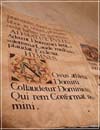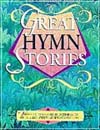

|
 |

Work, for the Night Is Coming
John 9:4
GRESHAM | Hymn History | Bible Passage
|
Author: |  |
Annie L. Coghill, 1836-1907
Alt. By Lowell Mason, 1792-1872 |
|
Musician: | |
Joan J. Pinkston, b. 1947 |
Work, for the night is coming,
Work thro' the morning hours;
Work while the dew is sparkling;
Work 'mid springing flow'rs.
Work when the day grows brighter,
Work in the glowing sun;
Work, for the night is coming,
When man's work is done.
Work, for the night is coming,
Work thro' the sunny noon;
Fill brightest hours with labor,
Rest comes sure and soon.
Give ev'ry flying minute
Something to keep in store;
Work, for the night is coming,
When man works no more.
Work, for the night is coming,
Under the sunset skies;
While their bright tints are glowing,
Work, for daylight flies.
Work till the last beam fadeth,
Fadeth to shine no more;
Work, while the night is darkening,
When man's work is o'er.
|


|
 |
HYMN HISTORY:
Work, for the night is coming,
Work through the morning hours;
Work while the dew is sparkling,
Work 'mid springing flowers;
Work when the day grows brighter,
Work in the glowing sun;
Work, for the night is coming
When man's work is done.
Annie Louise Walker, who was later to marry Harry Coghill, was only eighteen when she wrote the words of this famous gospel hymn. It is based on John 9: 4, 'The night cometh when no man can work' She was born in England, but later lived in Canada, and it was while in Canada in 1854 that the hymn was written, probably under the sense of the pioneering necessity of work, and more work, which helped to lay the foundations of Canada in the late nineteenth century.
Work till the last beam fadeth,
Fadeth to shine no more,
Work, while the night is dark'ning
When man's work is o'er
It is said that she disliked Lowell Mason's setting of her song, but his vigorous music has helped to give "Work, For The Night Is Coming" a firm tread which goes well with the words.
BIBLE PASSAGE:
4 I must work the works of him that sent me, while it is day: the night cometh, when no man can work.
|
|



